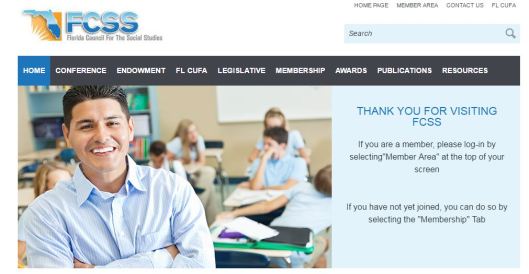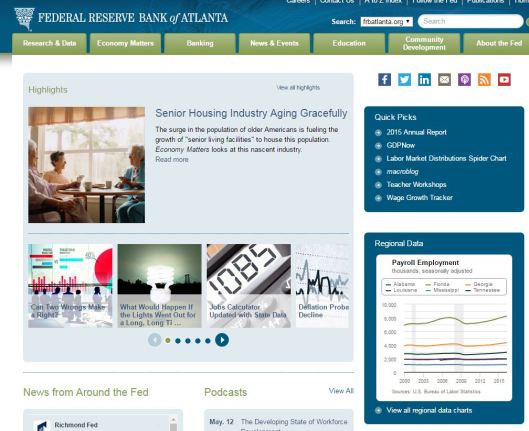Good morning, friends in Civics and Social Studies. Dr. Scott Waring, who leads the new College and University Faculty Assembly branch of the Florida Council for the Social Studies, has asked me to share a call for proposals for the upcoming October conference. Please take the time to review the call, and if you are interested, you can click at the end of this sentence to download the FL-CUFA_Proposal_15. All proposals should be sent directly to Dr. Waring at swaring@ucf.edu. I encourage you to consider joining us in October!
Presentation Formats
Paper Presentations (50 minutes)
An individual paper presentation gives authors an opportunity to present abbreviated versions of their empirical or theoretical/conceptual scholarship. After the papers are presented, a discussant will offer commentary on key revelations, vexations, and themes raised by the papers, and a chairperson will moderate questions and responses by audience members. For the sake of effective presentation and discussion, individual papers should be limited to 3,000 words, excluding references. The typical structure for a session with two papers includes a brief introduction by the chairperson, 15 minutes for each author’s presentation, 10 minutes for the discussant’s commentary, and 10 minutes of audience participation.
Symposium Sessions (50 minutes)
A symposium offers presenters, discussants, and audience members the opportunity to explore a particular problem or theme from various perspectives. Organizers of symposium sessions typically establish the topic, identify and solicit participation from appropriate scholars, and assemble and submit a single proposal representing the collective work of participants. Symposium proposals should include no more than four participants. The organizer must obtain permission and input from each individual represented in a symposium proposal. Symposium proposals must specify a discussant for the session. All presenters in a symposium should submit to the discussant a paper or commentary addressing the central theme or questions under consideration; symposium papers should be limited to 3,000 words. The chair, presenters, and discussant will determine how time is to be allocated during symposiums.
Contemporary Issues Dialogue (50 minutes)
The contemporary issues dialogue format offers conference attendees an opportunity to explore contemporary issues or dilemmas in social education via a unique forum not represented by paper sessions and symposiums. Contemporary issues dialogues can include informal discussions, town hall meetings, roundtables, papers-in-progress, structured poster sessions, research planning and methodological activities, video presentations and performances, and book talks. Sessions that promote active participation and open dialogue among audience members are strongly encouraged. Proposal authors will determine how time is to be allocated during contemporary issues dialogues.
Research-Into-Practice Sessions (50 minutes)
Research-into-practice sessions offer FL-CUFA members the opportunity to discuss and demonstrate the implications of research for educational practice. Given their association with the regular FCSS Conference program, audience members typically are classroom teachers, teacher educators, supervisors, and school administrators. With that audience in mind, presentations should feature scholarly, yet accessible, discussions and activities of interest to practicing educators. Proposal authors will determine how time is to be allocated during research into practice sessions.
Submission Guidelines
Presenters must provide, in an email to the Program Chair, Scott Waring (swaring@ucf.edu), the following:
- The names of all presenters and corresponding affiliations
- Lead presenter’s mailing address, email, and phone number
- A PDF or Microsoft Word compatible document, as described below, that includes a narrative of 3,000 words or fewer, excluding title, abstract, and references.
Because proposals will be reviewed in a blind peer review process, please do not include the names or affiliations of authors and presenters in the proposal document and ensure that no identifying information is embedded in the proposal document as metadata.
The Program Chair reserves the right to reject without review any proposal that exceeds the 3,000-word limit. The Program Chair reserves the right to disqualify submissions in which authors’ identifying information is revealed.
The submission deadline is Monday, August 31, 2015 11:59 p.m. No submissions will be accepted after that date and time.
Individual Paper and Symposium Proposal Contents
Each proposal should include the following elements: a) the title; b) an abstract of 35 words or less; c) the purposes and/or objectives of the study; d) the theoretical framework or perspective; e) research design and/or methods of inquiry; f) findings or arguments and their warrants; g) the importance of the work’s contribution to scholarship; and h) references. To preserve the integrity of the blind peer review process, please do not include the names or affiliations of authors and presenters in the proposal document. The Program Chair reserves the right to disqualify submissions in which authors’ identifying information is revealed. The review criteria will incorporate the clarity, organization, and perceived scholarly significance of elements c) through g) above.
Contemporary Issues Dialogue and Research Into Practice (RIP) Proposal Contents
Contemporary Issues Dialogue and RIP session proposals should include the following elements, as appropriate: a) the title of ten words or less; b) an abstract of 35 words or less; c) the purposes and objectives of the session; d) theory and research in which the session is grounded; e) methods of presentation or modes of activity for the session; f) findings or arguments and their warrants; and g) references.
To preserve the integrity of the blind peer review process, please do not include the names or affiliations of authors and presenters in the proposal document. The Program Chair reserves the right to disqualify submissions in which authors’ identifying information is revealed. The review criteria will incorporate the clarity, organization, and perceived significance of elements c) through f) above.
Participation Requirements
It is expected that all authors or presenters represented in a proposal will register for the FCSS Annual Meeting and attend and participate in conference sessions. If an emergency or other unforeseen circumstance precludes a participant from attending, she or he should immediately contact the Program Chair, Scott Waring, at swaring@ucf.edu. To promote diversity among perspectives and participants, no presenter shall appear as author or co-author on more than two proposals, or as chair or discussant on more than two proposals.






